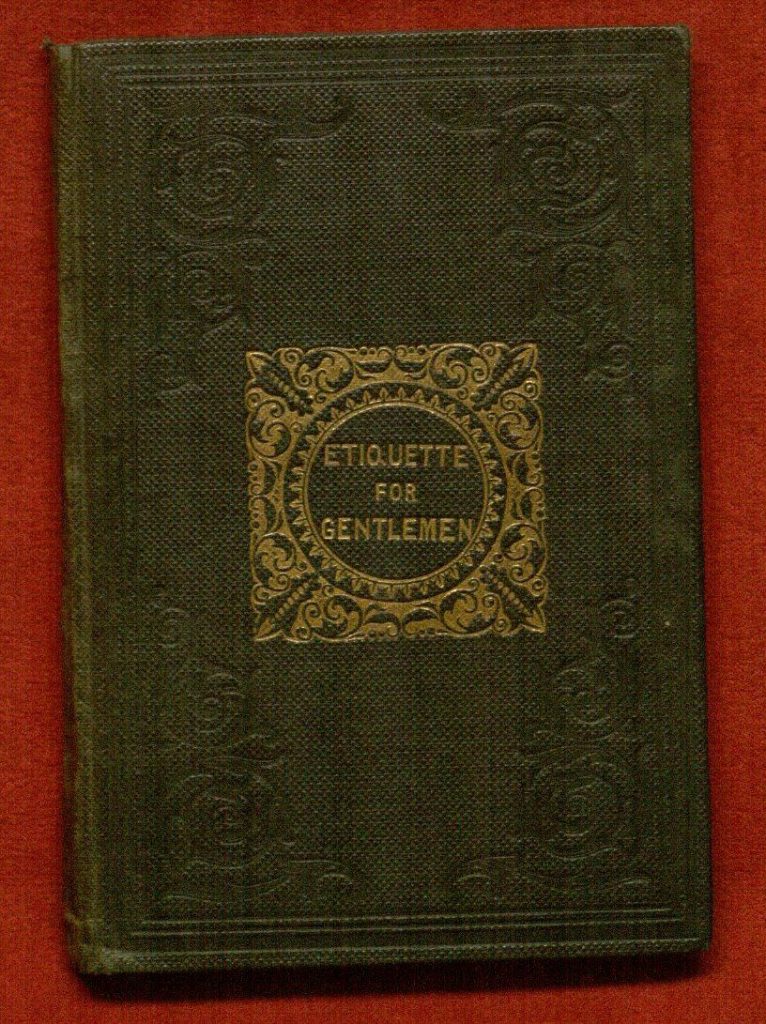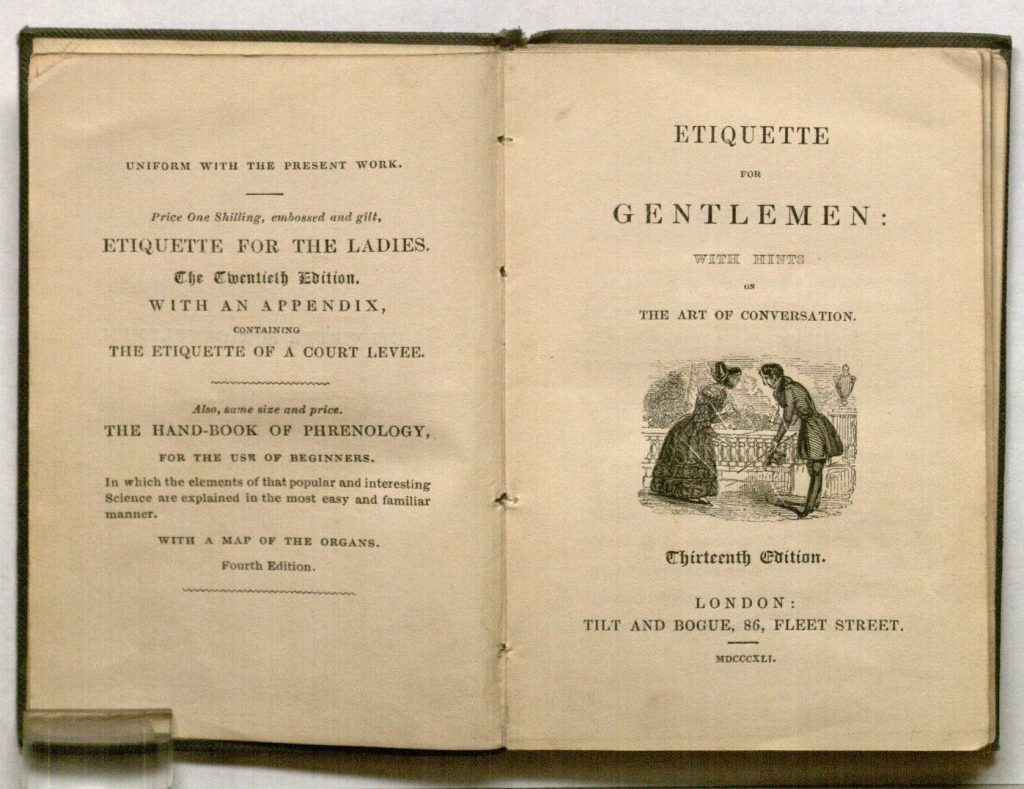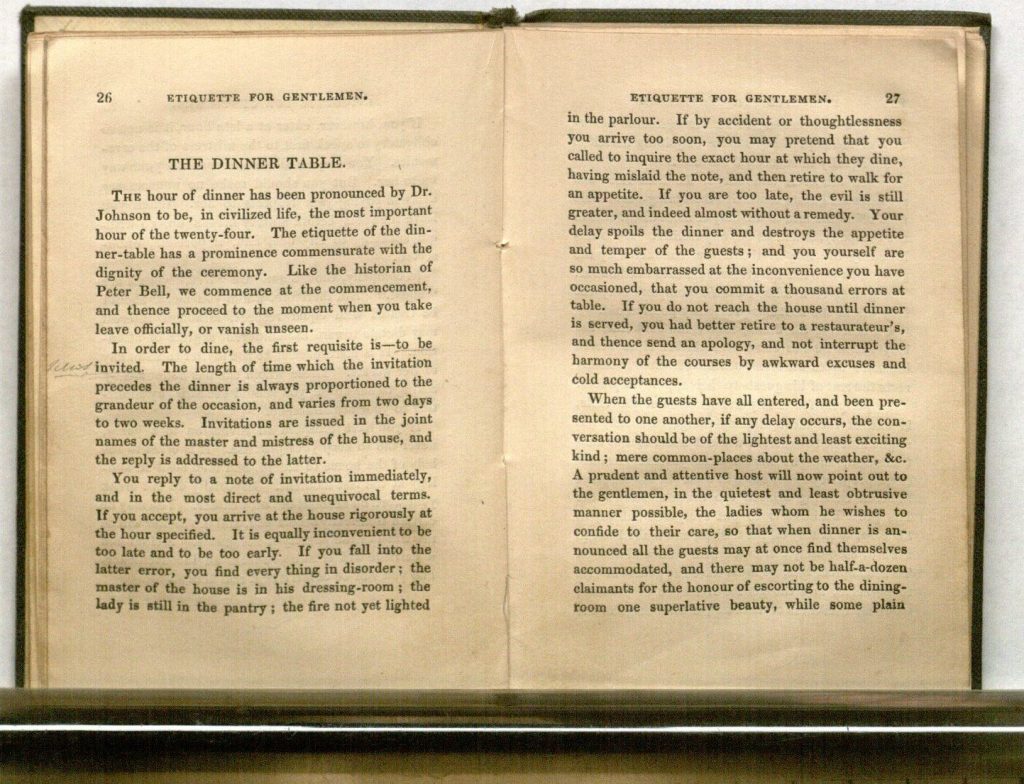Collection Snapshot: Late for Dinner?
November 29th, 2017It’s that time of year when dinner parties and invitations of all sorts abound, so we thought it might be interesting to turn to a nineteenth-century etiquette book to explore its advice on the age-old question of when to arrive for dinner.
Stamped cloth binding and title page of and title page of Etiquette for Gentlemen: With Hints on the Art of Conversation. London: Tilt and Bogue, 1841. Call #: A445. Click images to enlarge.
Of the numerous etiquette books in Spencer Research Library’s collections, Etiquette for Gentlemen: With Hints on the Art of Conversation offers particularly unyielding guidance. Its anonymous author advises:
If you accept [a dinner invitation], you arrive at the house rigourously at the hour specified. It is equally inconvenient to be too late and to be too early. If you fall into the latter error, you find every thing in disorder; the master of the house is in his dressing-room; the lady is still in the pantry; the fire not yet lighted in the parlour. If by accident or thoughtlessness you arrive too soon, you may pretend that you called to inquire the exact hour at which they dine, having mislaid the note, and then retire to walk for an appetite. If you are too late, the evil is still greater, and indeed almost without remedy. Your delay spoils the dinner and destroys the appetite and temper of the guests; and you yourself are so much embarrassed at the inconvenience you have occasioned, that you commit a thousand errors at table. If you do not reach the house until dinner is served, you had better retire to a restaurateur’s, and thence send an apology, and not interrupt the harmony of the courses by awkward excuses and cold acceptances.
Arrival etiquette in Etiquette for Gentlemen: With Hints on the Art of Conversation. London: Tilt and Bogue, 1841. Call #: A445. Click image to enlarge.
Etiquette for Gentlemen appears to have been first published in 1838, and the library holds the 1841 edition. The book’s advice, however, is hardly new as its preface confesses: “It is […] scarcely possible that anything original should be found in a brochure like the present: almost all that it contains must have fallen under the notice of every gentleman who has been in the habit of frequenting good society.” As with many etiquette books, the volume’s directives will strike modern readers as by turns sensible, humorous, odd, ill-conceived, and offensive. The volume itself is small enough to fit in the palm of one’s hand (and certainly one’s pocket) for ready consultation whenever the need might arise. Although, isn’t it perhaps impolite to pause a social interaction in order to consult one’s etiquette book?!
Elspeth Healey
Special Collections Librarian





